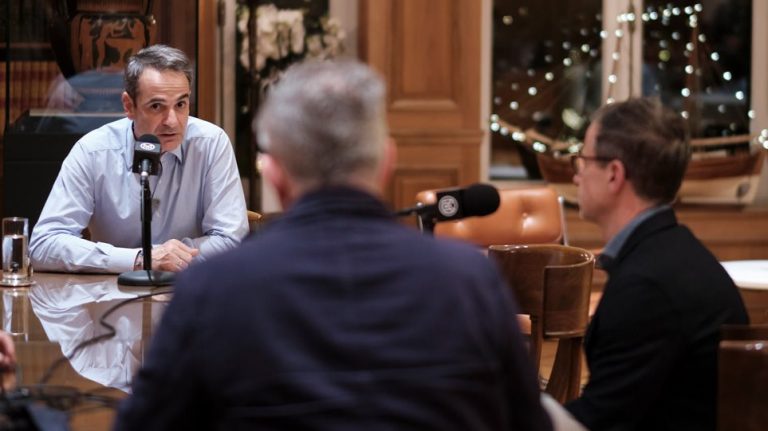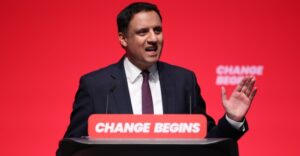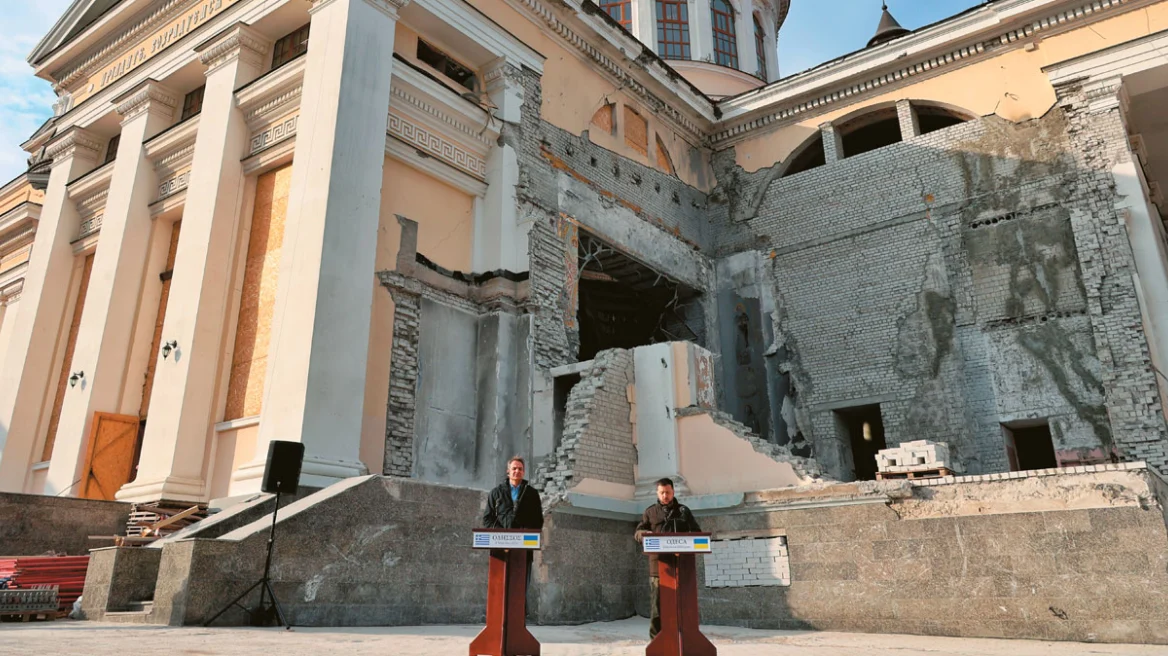The Greek Prime Minister Kyriakos Mitsotakis, gave an interview to Monocle Magazine and talked about his vision about country and the challenges Greece is facing in this post-crisis era.
As prime minister of Greece, Kyriakos Mitsotakis is hitting play on his nation’s sunny ambitions and, after years in the geopolitical wilderness, he is seeking to renew the economy and refresh what ‘brand Greece’ means to the world. And it’s making Greece a soft-power player to watch. Monocle’s Tyler Brûlé and Andrew Tuck visit Maximos Mansion in Athens to meet one of Europe’s most dynamic leaders.
monocle meets Greece’s prime minister, Kyriakos Mitsotakis, with the country – like much of Europe – in lockdown because of coronavirus. But as he talks in his office at Maximos Mansion, the tone is one of confidence and pride. The 52-year-old has led his country since July 2019, steering the nation through months of a global health crisis (with Greece winning praise for its handling of the virus, especially in the first wave), while also nurturing a revival of national confidence after years of painful economic austerity and populist government.
Mitsotakis has hit play on a new image and role for Greece that is seeing the return of a highly talented diaspora, a rapid rise in foreign direct investment, tax incentives given to encourage an increasingly vibrant start-up scene and a renewed determination for Greece to play a pivotal diplomatic, military and economic role in the Eastern Mediterranean, where relations with Turkey are tense because of clashing claims over maritime borders and “exclusive economic zones”. And ties have become all the more strained following the discovery of hydrocarbon reserves in the region.
Yet today, surrounded by a youthful team, Mitsotakis is keen to also talk about how the EU-backed National Recovery and Sustainability Plan will help to reshape Greece. And why, perhaps, you should be on an Aegean flight to Athens to see what the country has to offer everyone, from nomadic technology workers to companies seeking high-end manufacturing.
Tyler Brûlé: Prime minister, what shape was Greece in when you were elected?
We came into power in July 2019, in circumstances which were very different from the current context. But, essentially, what happened in Greece, during those elections was a resounding defeat of the particular brand of populism that flourished here between 2015 and 2019. During those years the country was run by a government where the majority was held by a leftist radical party elected on a populist platform that teamed up with a fringe party of the extreme right. Those were difficult days for Greece, particularly on the economic front. We almost went bankrupt in 2015; our banks closed. So we imposed unnecessary hardship on our people and growth lagged way behind in those years. There was also a time when our institutions were challenged. But this is the birthplace of democracy. The Greek people voted freely and elected to power a government that is moderate and focuses on strengthening institutions and transparency.Andrew Tuck: When you see people in the diaspora returning to Greece, people wanting to invest here, are you surprised at the speed at which this new confidence has taken root?
Last year was extremely challenging on various fronts. I’m not just talking about the pandemic: we also had real issues with Turkey and issues on the migration side. So it felt as though we were constantly in crisis-management mode. But Greek society really came together, especially during the first phase of the pandemic: there was a huge surge in national confidence, a belief, a sense of pride that we managed to deal with this issue much more successfully than many other countries. Obviously, we have been challenged during the second phase; we haven’t done as well, objectively, as within the first phase. But for a country that came out of 10 years of economic hardship with a healthcare system that had come under a lot of strain, we’ve done remarkably well. I’m a big believer in trust. And trust between people and the political elite had been shattered during the [financial crisis of 2008 and its aftermath]. We’re rebuilding this trust, step by step. There’s a general feeling that Greece has turned the corner, a new sense of national confidence – that’s very much exhibited in our diaspora. These are highly talented people who left the country during the crisis. The reason they’re returning – or contemplating returning – isn’t just to do with the fact that they’re offered more professional opportunities; it also has to do with a general sense that the country is moving in the right direction.Read more: Monocle
Pakistan may provide Turkey with Nuclear Weapons capabilities – Analysis
US secretary of state nominee Blinken says Turkey not acting like an ally
Ask me anything
Explore related questions





